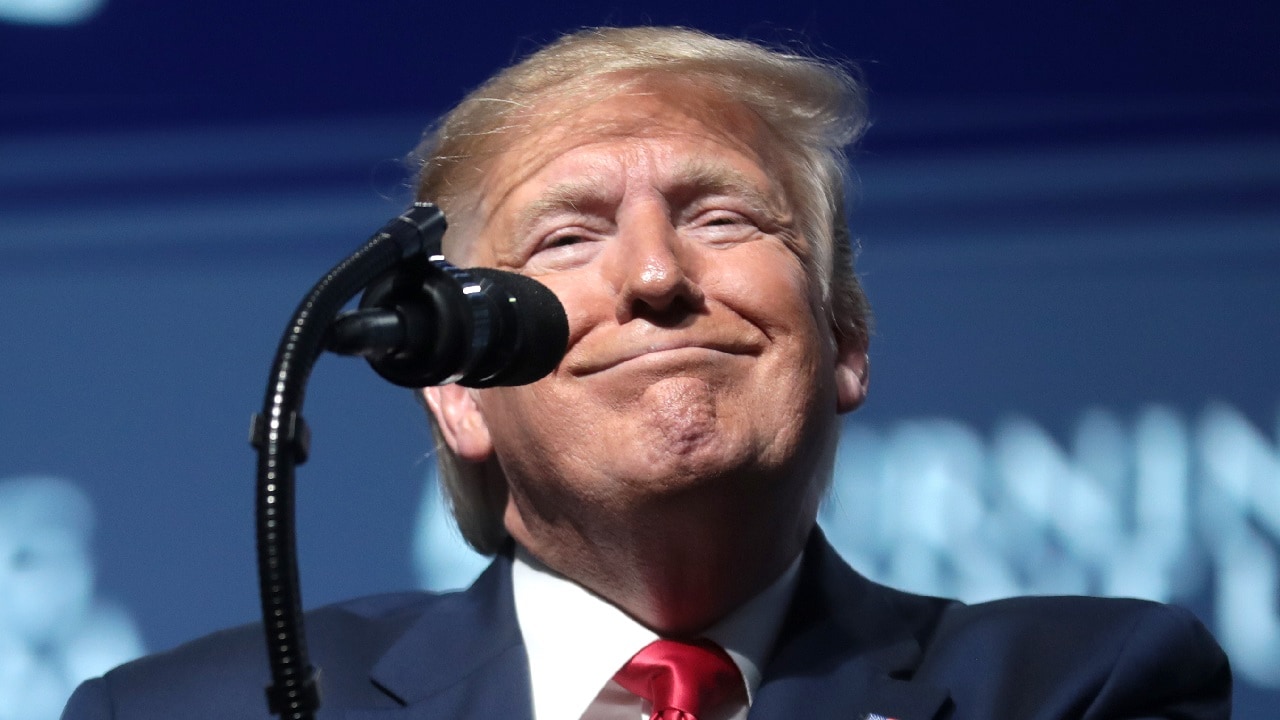Donald Trump ballot lawsuit in Colorado is still alive: A lawsuit alleging that Donald Trump is not eligible to serve as president has survived more legal challenges, but it remains a long shot.
Donald Trump: Kicked Off the Ballot
Earlier this fall, a series of efforts to prevent Donald Trump from being included on 2024 election ballots gained steam, especially following the publication of a law review article by a pair of conservative law professors who argued that Trump, due to his participation in what they called an act of insurrection, should be barred from appearing on a presidential ballot.
Now, at least one of those efforts has gone forward.
According to CNN, a judge in Colorado on Friday rejected three attempts by both Trump himself and the Colorado Republican Party to dismiss the suit. That means the case is scheduled to go to trial on October 30.
The suit was filed by the Citizens for Responsibility and Ethics in Washington (CREW), with plaintiffs including several Republican political figures from Colorado.
The ruling came from Colorado District Judge Sarah Wallace.
“If the Party, without any oversight, can choose its preferred candidate, then it could theoretically nominate anyone regardless of their age, citizenship, residency,” Judge Wallace wrote in the ruling. “Such an interpretation is absurd; the Constitution and its requirements for eligibility are not suggestions, left to the political parties to determine at their sole discretion.”
In the ruling, the judge cited Neil Gorsuch, then a Colorado-area appellate judge and now a Trump-nominated Supreme Court justice. In a 2012 ruling, Gorsuch found that states had the power to “exclude from the ballot candidates who are constitutionally prohibited from assuming office.”
The Trump campaign disagreed with the ruling.
“She is going against the clear weight of legal authority. We are confident the rule of law will prevail, and this decision will be reversed – whether at the Colorado Supreme Court or at the U.S. Supreme Court,” a Trump campaign spokesperson told CNN. “To keep the leading candidate for President of the United States off the ballot is simply wrong and un-American.”
The idea that Trump could be barred from the ballot in states remains a long shot, and the question will probably end up being decided in the U.S. Supreme Court.
Earlier this month, the U.S. Supreme Court declined to hear a different case to get Trump disqualified from the ballot. That suit had come from John Anthony Castro, an obscure candidate for the Republican presidential nomination.
Castro had sought to disqualify Trump due to his “alleged provision of aid or comfort to the convicted criminals and insurrectionists that violently attacked our United States Capitol on January 6, 2021.” The court did not give a reason for its refusal to hear the case.
There is also a case in Minnesota, aimed at disqualifying Trump from the ballot there.
The current efforts to disqualify Trump began with the publication of “The Sweep and Force of Section Three” a University of Pennsylvania Law Review article authored by conservative professors William Baude of the University of Chicago Law School and Michael Stokes Paulsen of the University of St. Thomas School of Law.
“Section Three of the Fourteenth Amendment forbids holding office by former office holders who then participate in insurrection or rebellion. Because of a range of misperceptions and mistaken assumptions, Section Three’s full legal consequences have not been appreciated or enforced,” the authors argued in the paper.
They argued that while the Fourteenth Amendment was first written to apply to Confederates during the Civil War, it continues to apply today.
“The case for disqualification is strong,” Baude and Paulsen said of Trump. They pointed to several actions of the ex-president.
These included “ calling it ‘stolen’ and ‘rigged’; that Trump (with the assistance of others) pursued numerous schemes to effectuate this objective; that among these were efforts to alter the vote counts of several states by force, by fraud, or by intended intimidation of state election officials, to pressure or persuade state legislatures and/or courts unlawfully to overturn state election results, to assemble and induce others to submit bogus slates of competing state electors, to persuade or pressure Congress to refuse to count electors’ votes submitted by several states, and finally, to pressure the Vice President unconstitutionally to overturn state election results in his role of pre[1]siding over the counting of electors’ votes.”
Author Expertise and Experience
Stephen Silver is a Senior Editor for 19FortyFive. He is an award-winning journalist, essayist and film critic, who is also a contributor to the Philadelphia Inquirer, the Jewish Telegraphic Agency, Broad Street Review and Splice Today. The co-founder of the Philadelphia Film Critics Circle, Stephen lives in suburban Philadelphia with his wife and two sons. Stephen has authored thousands of articles over the years that focus on politics, technology, and the economy for over a decade. Follow him on X (formerly Twitter) at @StephenSilver, and subscribe to his Substack newsletter.
From the Vault

